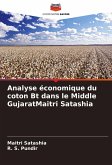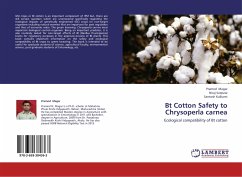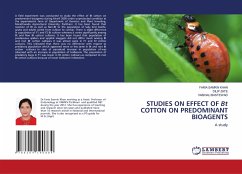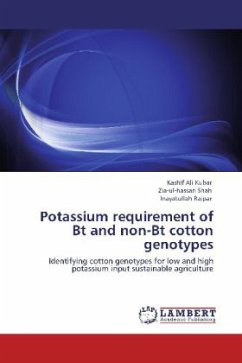The phenomenal increase in cotton production in India in the period 2002 to 2014 is due to the structural transformations in the cotton value chain driven by multiple factors including: the high and broad scale adoption of Bt-cotton technology, hybridization of the cotton crop, supply of good quality seeds by the private sectors and the untiring efforts of millions of small resource-poor cotton farmers. However, over the last few years, Pink bollworm has started showing resistance against Bt-technology. Thus, there is need for more innovative, high-yielding and resistant varieties so that cotton crop could be protected from a broad spectrum of bollworm complex and spodoptera and eventually make it more remunerative and sustainable. The resurgence of cotton, the white gold of rural India can help resurrect the spirit of the Gandhian 'spinning wheel' and the glory of the cotton and textile sectors in the country.
Bitte wählen Sie Ihr Anliegen aus.
Rechnungen
Retourenschein anfordern
Bestellstatus
Storno








